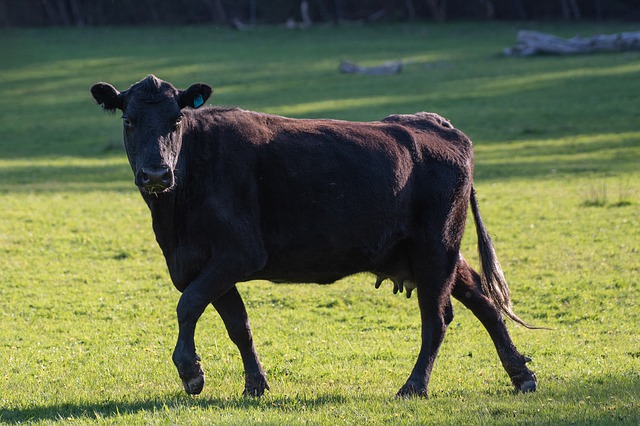By Lynda Kiernan-Stone, Global AgInvesting Media
Packhorse Pastoral launched in March 2021 with a goal of eventually building a $1 billion portfolio of cattle properties by 2027 that will play a critical role in carbon restoration and addressing climate change.
Created by Packhorse Investment, Packhorse Pastoral Company Australia (PPCA) is chaired by Tim Samway (the chair of Hyperion Asset Management) who has secured cornerstone backing from Terry Snow, the richest person in Canberra and owner of the Canberra Airport, and is being led by CEO Geoff Murrell, the former general manager of Macquarie Bank’s Paraway Pastoral Company.
Packhorse has been in operation since 2014, and has amassed a portfolio of agricultural properties totaling about 56,000 hectares, and manages $200 million in private holdings – PPCA is the company’s first launch into a public strategy.
Upon its launch, CEO Geoff Murrell commented, “Globally, there’s a recognition that our ecosystems are in trouble and that current farming practices are highly detrimental to soil health. Regenerative agricultural methods focus on achieving biodiversity above and below ground, coupled with animal impact to replenish and protect soils.”
The cornerstone capital provided by Terry Snow has enabled PPCA to make its first acquisition – the purchase of Stuart Creek, a 8,360-hectare Hereford cattle stud located outside of Roma for $30 million.
This asset marked the beginning of Packhorse Pastoral’s portfolio that meets stringent requirements that it provide opportunities for land regeneration and restoration, carbon sequestration, positive environmental impact, and capital growth.
“We have a staged approach to building the Packhorse business and a very strong property pipeline,” said Murrell.
An initial funding target of $300 million has been set to deploy across four to six agricultural properties that will operate mostly under a service delivery model and non-ownership of cattle – meaning the properties will be rejuvenated and leased out to top beef producers for cattle feeding. Through this model the company is aiming to repair the soil with the help of cattle to restore grassland, and by doing so, is targeting an IRR of between 8-10 percent (3-4 percent from yields and 5-6 percent from appreciation).
The restoration of these assets will not only improve the carbon content of the soil, but will then enable PPCA to sell carbon credit offsets at scale in a market expected to be valued at $8.25 billion by 2027, positioning the company as the world’s leading land steward, restorer, and beef supply chain.
In July 2021, when Packhorse Pastoral closed on A$62.5 million (US$44.6 million) and acquired its first asset, the asset manager made it known that it was scouting potential acquisitions between Coonamble in New South Wales and Taroom in Queensland.
As part of this process, pastures are assessed and a baseline level of soil organic carbon is calculated by the firm, which then plants trees, grasses, and cultures to introduce specific flora. This, combined with high-density livestock grazing to assist the regenerative process, will result in improved value of the land through an increase in the carrying capacity of each property.
This activity has resulted in Packhorse Pastoral expanding into New South Wales with the acquisition of the 8,654-hectare (21,384-acre) Ottley Station, while the station’s herd of approximately 3,000 head has been acquired by Australian Country Choice – a major provider of high-quality meat products to domestic and export markets. Although the purchase price for this asset was undisclosed at the request of the seller, the addition of this asset brings Packhorse Investments Australia to A$340 million (US$243 million).
An agreement has been made through which Packhorse Pastoral will foster the ACC herd on Ottley under its Grass Motel agistment model (agistment refers to a model of taking on cattle to be fed at a set rate and schedule).
In exchange for this exclusive use of the station, ACC would be responsible for paying a base fee that would entail either 2 percent of the purchase price of the property, or a percentage of the agistment fee that would be secured when the station is fully stocked – this would be in addition to a per-head rate.
As part of this arrangement, Packhorse Pastoral would be accountable for the upkeep and care of the herd including vaccinations, branding, nutritional management, and recording and reporting weights for the client.
“The upside for investors is not only capital appreciation that has been growing at an average of 7.5 percent per annum for the last 20 years, but also a regular income stream from the cattle agistment model,” noted Murrell, adding, “Additionally, investors may benefit from the growing carbon market. With the price of ACCUS [Australian Carbon Credit Units] over $50, this may present a very exciting future income upside.”
*The content put forth by GAI News and its parent company HighQuest Partners is intended to be used and must be used for informational purposes only. All information or other material herein is not to be construed as legal, tax, investment, financial, or other advice. GAI and HighQuest Partners are not a fiduciary in any manner, and the reader assumes the sole responsibility of evaluating the merits and risks associated with the use of any information or other content on this site.
– Lynda Kiernan-Stone is editor with GAI Media, and is managing editor and daily contributor for Global AgInvesting’s AgInvesting Weekly News and Agtech Intel News, as well as HighQuest Group’s Oilseed & Grain News. She can be reached at lkiernan-stone@

